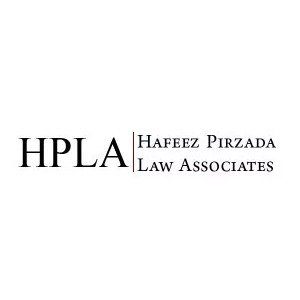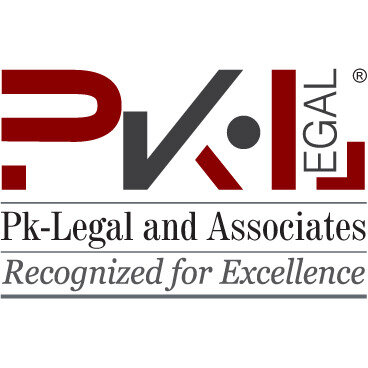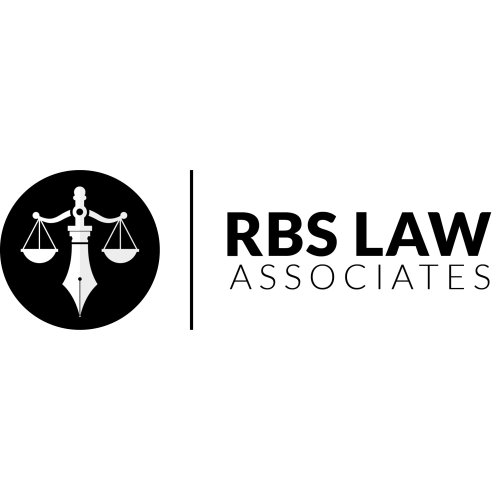Best Mining Law Lawyers in Pakistan
Share your needs with us, get contacted by law firms.
Free. Takes 2 min.
Or refine your search by selecting a city:
List of the best lawyers in Pakistan
About Mining Law in Pakistan
Mining Law in Pakistan refers to the body of laws, regulations, and rules that govern the exploration, extraction, processing, and management of minerals and mining activities within the country. Pakistan possesses a rich endowment of mineral resources, including coal, salt, gypsum, limestone, copper, gold, and other precious and industrial minerals. The legal framework for mining is primarily established through national and provincial laws, with matters such as licensing, environmental compliance, land use, safety, and royalties being key legal considerations. Both the federal and provincial governments play significant roles in regulating the mining sector, making the legal landscape for mining complex and multifaceted.
Why You May Need a Lawyer
Engaging in mining activities in Pakistan can involve a host of legal challenges and requirements. Common situations where individuals or businesses may require legal assistance include:
- Applying for or renewing mining licenses and leases from governmental authorities
- Understanding and complying with local, provincial, and federal mining regulations
- Negotiating joint venture agreements, partnerships, or investments related to mining projects
- Addressing disputes over land rights, mineral ownership, or boundaries
- Managing issues related to community relations, land acquisition, and compensation
- Ensuring environmental compliance and dealing with penalties or claims arising from environmental impact
- Handling health and safety compliance to protect workers and avoid liabilities
- Navigating tax matters and payments of royalties to the state
- Assisting with export regulations and foreign investment in mining projects
- Responding to enforcement actions or investigations from regulatory bodies
In such cases, a qualified lawyer can help protect your interests, clarify your rights and obligations, and provide representation in negotiations or court proceedings.
Local Laws Overview
Mining in Pakistan is governed by a combination of federal statutes and provincial laws. The principal federal law is the Regulation of Mines and Oilfields and Mineral Development (Government Control) Act, 1948. However, after the 18th Amendment to the Constitution of Pakistan, the control and regulation of most minerals (except oil, gas, and nuclear substances) primarily fall under the jurisdiction of provincial governments.
Key aspects of local mining laws include:
- Licensing and Leases: Companies or individuals must obtain the appropriate prospecting licenses or mining leases from the relevant provincial mines and minerals department.
- Environmental Clearance: Mining projects must comply with environmental laws, including conducting Environmental Impact Assessments (EIA) for significant operations.
- Land and Surface Rights: There may be a distinction between surface rights and mineral rights. Land acquisition may require negotiations or compensation to landowners.
- Health and Safety: Operators must adhere to regulations ensuring the safety of workers and mining communities.
- Royalty and Taxation: Miners are required to pay royalties on extracted minerals and comply with applicable taxes.
- Foreign Investment: Foreign entities can participate in the sector, but may face restrictions or additional requirements.
- Dispute Resolution: Disputes may be resolved through administrative mechanisms, courts, or arbitration, as provided by Pakistani laws.
Each province (Punjab, Sindh, Khyber Pakhtunkhwa, and Balochistan) has its own specific mining rules and departments that handle local implementation and enforcement.
Frequently Asked Questions
What is the process for obtaining a mining license in Pakistan?
The process typically involves applying to the relevant provincial or federal authority, submitting the required documents, and fulfilling technical, financial, and environmental criteria. There are usually separate procedures for prospecting licenses and mining leases.
Who owns the mineral resources in Pakistan?
Generally, all mineral resources are owned by the state, which grants rights to explore or mine them through licenses or leases to applicants.
Are foreign companies allowed to mine in Pakistan?
Yes, foreign companies can invest and participate in mining projects, subject to investment policies, sector-specific requirements, and licensing by the authorities.
What environmental approvals are needed for a mining project?
Most mining projects require an Environmental Impact Assessment (EIA) and a No Objection Certificate (NOC) from the relevant Environmental Protection Agency before operations can begin.
How are mining royalties and taxes determined?
Royalties are calculated as a percentage of the value or volume of the extracted minerals, as defined in the relevant provincial rules. Taxes must also be paid as per state and federal tax laws.
Can local communities oppose mining activities?
Yes, local communities have rights to object if mining activities impact their land or environment. Laws may require consultation or compensation to affected communities.
What happens if there is a dispute over a mining title?
Disputes can be resolved through administrative review, tribunals, or civil courts. Some contracts may also provide for arbitration.
Is land acquisition mandatory for obtaining a mining license?
Not always. While surface rights may assist operations, mineral rights are granted by the state, and land acquisition is subject to negotiations or other legal avenues.
What are the safety requirements in mines?
Operators must comply with detailed safety regulations covering ventilation, equipment, worker training, accident management, and emergency procedures.
How can mining activities be suspended or cancelled by authorities?
If laws or license conditions are violated, regulatory authorities can suspend or cancel licenses through due process, usually after issuing a notice and providing an opportunity to respond.
Additional Resources
For further information, you may find the following resources and organizations helpful:
- Provincial Department of Mines and Minerals offices (Punjab, Sindh, Khyber Pakhtunkhwa, Balochistan)
- Geological Survey of Pakistan
- Directorates General of Mines and Minerals
- Environmental Protection Agencies (provincial and federal)
- Pakistan Mineral Development Corporation (PMDC)
- Board of Investment (BOI) Pakistan
- Pakistan Mining Concession Rules (province-specific)
- Chambers of Commerce and Industry with mining focus
Next Steps
If you require legal assistance regarding mining law in Pakistan, consider the following steps:
- Identify the specific issue or question you are facing, such as licensing, land dispute, environmental compliance, or partnership agreements.
- Gather all relevant documents, correspondence, and information related to your mining interests.
- Consult with a lawyer or law firm experienced in mining law and related regulations within your province.
- If you are a foreign investor or company, seek guidance on sector-specific policies and compliance requirements.
- Contact the relevant provincial or federal mining departments for procedural guidance before initiating formal applications.
- Join industry associations or reach out to business chambers for peer advice and practical insights.
- If facing disputes, attempt early resolution or mediation before escalating to litigation or arbitration.
Taking early and informed legal advice can help you navigate regulatory complexities, safeguard your investment, and ensure operational compliance in Pakistan’s mining sector.
Lawzana helps you find the best lawyers and law firms in Pakistan through a curated and pre-screened list of qualified legal professionals. Our platform offers rankings and detailed profiles of attorneys and law firms, allowing you to compare based on practice areas, including Mining Law, experience, and client feedback.
Each profile includes a description of the firm's areas of practice, client reviews, team members and partners, year of establishment, spoken languages, office locations, contact information, social media presence, and any published articles or resources. Most firms on our platform speak English and are experienced in both local and international legal matters.
Get a quote from top-rated law firms in Pakistan — quickly, securely, and without unnecessary hassle.
Disclaimer:
The information provided on this page is for general informational purposes only and does not constitute legal advice. While we strive to ensure the accuracy and relevance of the content, legal information may change over time, and interpretations of the law can vary. You should always consult with a qualified legal professional for advice specific to your situation.
We disclaim all liability for actions taken or not taken based on the content of this page. If you believe any information is incorrect or outdated, please contact us, and we will review and update it where appropriate.
Browse mining law law firms by city in Pakistan
Refine your search by selecting a city.

















